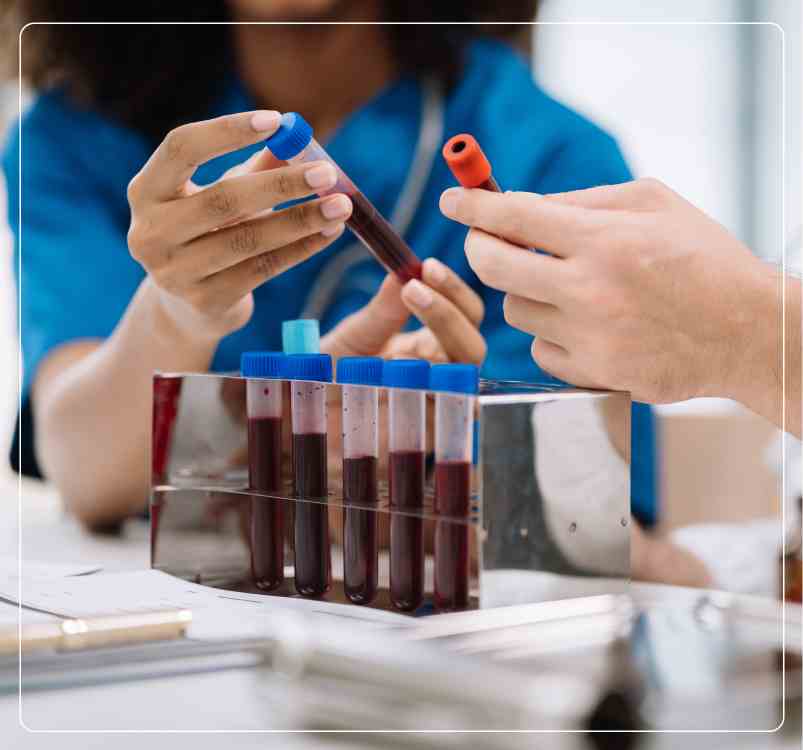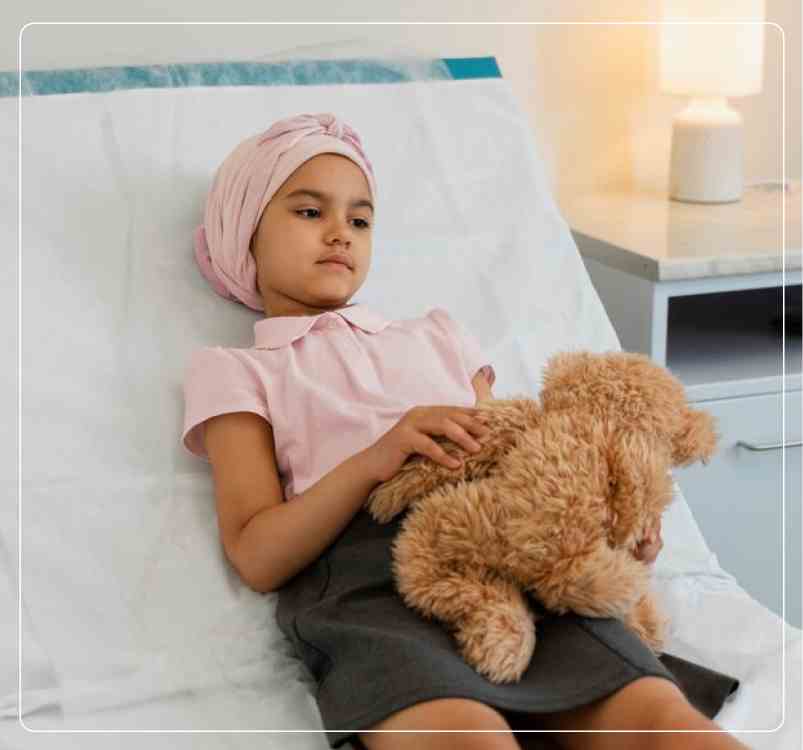Pediatric Cancer
Dr. Mukti Mukherjee
[12+ Years Experience]
Radiation Oncologist In Kolkata
Pediatric Cancer Doctor in Kolkata
Types of Pediatric Cancer
Brain tumors
Cancers that develop in the brain or spinal cord.
- Medulloblastoma
- Ependymoma
- Pontine glioma
- Pilocytic astrocytoma
Retinoblastoma
A common childhood eye cancer developing in the retina, the light-sensitive layer at the back of the eye.
Neuroblastoma
Wilms tumor
Hematological Malignancy
Originates in the blood-forming tissues and affects the bone marrow and blood/immune system cells.
- Leukemia Cancer of the blood-forming tissues
Bone & soft tissue
Rare tumors that develop in a child’s bones, muscles, tendons, or other connective tissues.
- Rhabdomyosarcoma
- Ewing’s Sarcoma
- Osteosarcoma
Testicular Tumor
Reach out: Your path to quality care starts here
58, Canal Circular Rd, Kadapara, Phool Bagan, Kakurgachi,
Kolkata – 700054
Let’s Talk
Symptoms
Hematological malignancy: Fever, Unusual bruising, Bleeding, Swollen lymph nodes
Bone & soft tissue: Bone pain and swelling (anywhere in the body)
Wilms tumor: Abdominal swelling
Retinoblastoma: Blindness
Brain: Headache, vomiting, visual disturbance, walking difficulties
Causes

Genetic mutation

Unknown
Evaluation
Management
- Surgery
- Chemotherapy
- Radiation Therapy
- Immunotherapy




